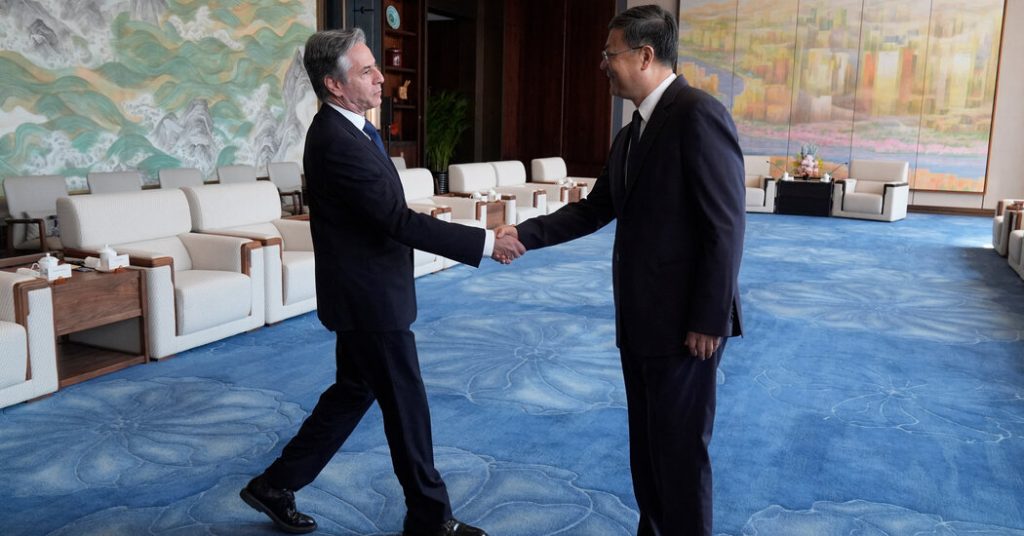Secretary of State Antony J. Blinken is currently meeting officials in China as tensions between the United States and China are on the rise due to disputes over various issues such as wars, trade, technology, and security. The relationship between the two countries has been strained, with both nations trying to stabilize their interactions amidst increasing challenges. President Biden is under pressure to address issues related to China’s authoritarian government and protect American businesses and workers from competition with low-priced Chinese imports.
One key area of contention between the United States and China is China’s territorial claims, particularly in the South China Sea and Taiwan. The United States has been building security alliances in the region to counter China’s assertive claims, leading to concerns in Beijing that the United States is trying to contain China’s rise. Encounters between Chinese and American military ships and planes in the region have heightened tensions and raised fears of potential conflicts. China has accused the United States and its allies of interference in the region and has been working to strengthen ties with nonaligned countries in response to U.S. actions.
Another issue of concern is the flow of fentanyl from China to the United States, with U.S. officials urging China to take action to reduce the supply of fentanyl precursors. The United States has accused China of promoting the supply of fentanyl precursors to the U.S., leading to a crisis. While China has denied playing a major role in the crisis, it has taken some steps to address the issue. However, the U.S. is likely to push for further action from China to curb the flow of fentanyl.
Trade and technology restrictions have also been a point of contention between the U.S. and China. The trading relationship between the two countries has become more contentious, with the U.S. imposing tariffs on certain Chinese products and restricting the sale of advanced chips to China. The Biden administration has raised concerns about Chinese exports of electric vehicles and green energy goods, seeing them as a threat to American jobs. Additionally, the Senate passed a bill that could force TikTok’s Chinese owner to sell the app, further escalating tensions.
Cybersecurity and election interference have also been areas of concern for the U.S., with officials warning about Chinese attempts to influence the upcoming U.S. presidential election and gain access to critical infrastructure. While China has denied engaging in cyberattacks and election interference, leaked documents have shown the country has a network of state-sponsored hackers. Additionally, China’s support for Russia in the conflict in Ukraine has strained relations between China and the U.S., with American officials urging China to withdraw that support to determine the outcome of the war.
Lastly, U.S. officials are engaging with China to use its influence over Iran to prevent further escalation of tensions in the Middle East. China and Iran have a long-standing diplomatic relationship, with China investing billions in Iran in exchange for oil and fuel. China has characterized Iran’s recent actions against Israel as self-defense, and Beijing’s alignment with the Muslim world in blaming the U.S. for instability in the Middle East has further complicated the situation. The U.S. is hoping to leverage China’s influence over Iran to prevent further conflict in the region.














